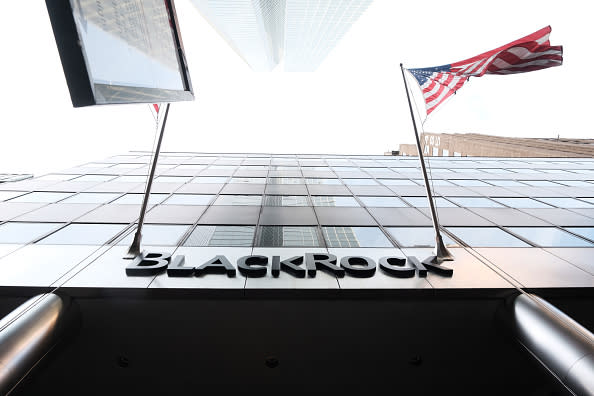US asset managers’ split widens over social and environmental issues

The split between US asset managers on issues around social and environmental policies has continued to widen, according to a new analysis of their proxy voting policies.
While the asset management industry has previously seen itself at the vanguard of pushing for social and environmental change by pressuring companies to adopt policies such as greater disclosure, it seems that the tide has begun to turn.
The issues have been a thorn in the side of giant US asset managers such as Blackrock, who have faced condemnation and attacks from right-wing politicians in the US over their policies.
In December, Blackrock was sued by the attorney general of Tennessee over its ESG policies, while it has been dropped from the public pension funds of multiple US states due to its support of sustainable investing.
CEO Larry Fink dropped the use of the term ‘ESG’ entirely last year, stating that it had been “weaponised”.
“As I have said consistently over many years now, it is for governments to make policy and enact legislation, and not for companies, including asset managers, to be the environmental police,” he said in March, in a move that was seen as a pivot for the firm.
The largest asset managers were revealed to be moving quickly away from a ‘pro-ESG’ position in a report today investigating the voting records and policy stances of the 10 largest US asset managers by Morningstar.
Support for disclosing emissions within the value chain of organisations, known as Scope 3 emissions, received no support from the asset managers, in contrast to European behemoths such as BNP Paribas, who were firm supporters of resolutions pushing for the issue.
Indeed, the five big European asset managers were entirely supportive of all six policy areas identified by Morningstar, except for Scope 3 disclosure where DWS and UBS were described as neutral.
Blackrock and Dimensional were identified as being actively unsupportive of the US asset managers for bringing in measures to require disclosure of Scope 3 emission.
T Rowe Price was singled out as the only large US asset manager categorised as being ‘unsupportive’ of preventing negative societal impacts with their voting policies, though many more received a ‘neutral’ rating.
This was due to their record of not voting in favour of human rights-focused policies, as well as stating it was likely to oppose proposals that “seek to apply company-level solutions to a broad societal problem” in 2024.
Meanwhile, JP Morgan was described as most unsupportive of resolutions targeting corporate political influence, such as disclosure of political contributions or lobbying activities, stating explicitly it would be voting against certain kinds of politically focused proposals.
Lindsey Stewart, director of investment stewardship research, Morningstar, commented: “Our analysis shows that supportive policy language does not necessarily translate into high support for environmental and social proposals on the proxy card.
“The departure of State Street and JPMorgan from the Climate Action 100+ engagement initiative — with BlackRock also limiting participation to its international business — has captured news headlines recently.
“However, given that none of the firms have so far modified their voting policy following the announcement, this development would appear to reflect the existing direction of travel for those firms’ stewardship efforts.”
Stewart added: “With no clear catalyst for further changes in these firms’ stances on environmental and social issues, it appears that the wide range of voting outcomes and manager rationales witnessed last year will persist into 2024.”

 Yahoo Finance
Yahoo Finance 